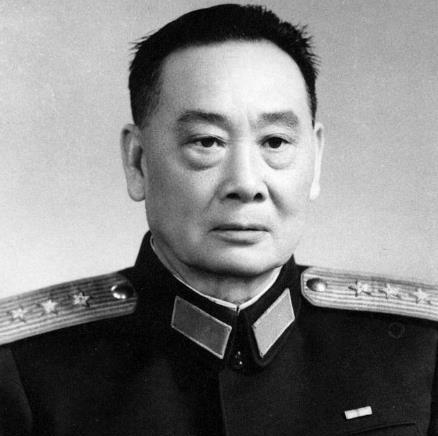Among the founding generals, who participated in the Battle of Songhu? There may be many friends who can't answer. Because when mentioning the founding general, the first reaction of many people was to be born in the generals of the Eighth Route Army and the New Fourth Army, and neither the Eighth Route Army nor the New Fourth Army participated in the Battle of Songhu.
However, among the 57 founding generals, in addition to 54 from the Eighth Route Army and the New Fourth Army, three were rebel generals of the Nationalist Army, namely Dong Qiwu, Chen Mingren and Tao Zhiyue. Of these three men, only Tao Zhiyue participated in the Battle of Songhu and performed extremely well, and the Japanese army admired him.

Born in 1892, Tao Zhiyue was born in 1892 and entered the Hunan Army Primary School at the age of 15, thus starting his military career, which was 1907 AD and the 33rd year of Guangxu. Four years later, Tao Zhiyue participated in the Wuchang Uprising and joined the League, after which he entered the Baoding Military Academy for further study, and after graduation returned to the Xiang Army Tan Yanmin Department.
During the Northern Expedition, Tao Zhiyue was promoted to major general of the 3rd Brigade of the Independent 2nd Division of the National Revolutionary Army due to his many meritorious achievements. After that, Tao Zhiyue's position was steadily improved, and after the outbreak of the War of Resistance Against Japan, he served as the commander of the 8th Division of the Nationalist Army and was ordered to lead his troops to participate in the Battle of Songhu.
At that time, the 8th Division was subordinate to the 17th Army and was under the command of The Commander Hu Zongnan. As soon as Tao Zhiyue and his troops got off the train, they were sent by Hu Zongnan to Yunzaobang. On September 20, 1937, under the cover of the navy and air force, the Japanese launched a series of attacks on the positions of the 8th Division.
Under the command of Tao Zhiyue, the officers and men of the 8th Division fought bravely and fought a bloody battle with the Japanese Kou, repelling the enemy's attacks again and again. While blocking the frontal attack, Tao Zhiyue also sent small units to carry out flanking and night attacks on the enemy on many occasions, and the fighting was extremely flexible.
The Japanese had planned to take Uzumakihama in three days, but the officers and men of the 8th Division relied on their heroic and tenacious spirit and flexible tactics to hold out for 21 days and nights. It should be known that the elite divisions of the Nationalist army at that time could only hold out for 7 days, and the 8th Division of Miscellaneous Cards led by Tao Zhiyue actually held out for 21 days, which showed the strength of its military ability.
Later, when recalling this vicious battle, Tao Zhiyue wrote: "In the case of a strong enemy and a weak enemy, we have been circling with the enemy for 21 days and nights in Yunzaohama, and the position is as peaceful as a rock. The troops are in the smoke of war every day, and rest and meals are only carried out in between battles. The frequency and intensity of the fighting is unprecedented. ”
The Battle of Yunzaobang made Tao Zhiyue famous in the First World War, and thus entered the ranks of famous anti-Japanese generals. Shortly after the war, he was promoted to commander of the First Army, deputy commander-in-chief of the 34th Army in 1940, and commander-in-chief of the 37th Army two years later.
After the victory of the War of Resistance Against Japanese Aggression, Tao Zhiyue served as chairman of the Kuomintang Xinjiang Provincial Government and commander-in-chief of the Xinjiang Garrison, and he agreed with our party's propositions, opposed the civil war, and made important contributions to stabilizing the situation in Xinjiang. At the end of September 1949, Tao Zhiyue used thunderous means to disarm Reactionary officers such as Ye Cheng, Luo Shu, and Ma Chengxiang, and sent them out of the country, and then declared a peaceful uprising.
After the uprising, Tao Zhiyue successively served as commander of the 22nd Corps of the People's Liberation Army, member of the Northwest Military and Political Committee, deputy commander of the Xinjiang Military Region and commander of the Xinjiang Production and Construction Corps, and made important contributions to the construction and development of Xinjiang, and was awarded the rank of general in 1955. General Tao Zhiyue was very honest in his life, and his requirements for his descendants were extremely strict, and none of his 15 descendants were officials. In 1988, General Tao Zhiyue died of illness at the age of 97.